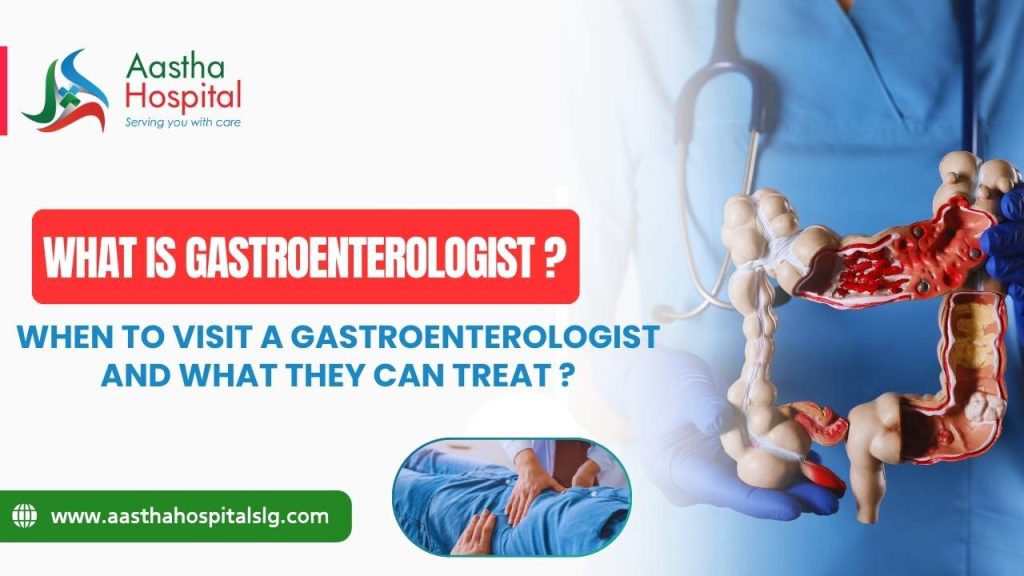Gastroenterologists are specialized physicians who diagnose and treat conditions affecting the gastrointestinal (GI) tract, which includes the esophagus, stomach, intestines, liver, pancreas, and gallbladder. Given the complexity of the digestive system and the variety of issues that can arise, gastroenterologists play a crucial role in maintaining digestive health and addressing serious medical concerns. This comprehensive guide will cover what gastroenterologists do, the conditions they treat, and when you should consider seeing one.
What is a Gastroenterologist?
A gastroenterologist is a doctor who specializes in the diagnosis and treatment of digestive system disorders. This medical specialty is known as gastroenterology, a branch of internal medicine. Gastroenterologists undergo extensive training, including:
- Medical School: Four years of medical education.
- Internal Medicine Residency: Three years of residency in internal medicine.
- Gastroenterology Fellowship: Additional 2-3 years of specialized training in gastroenterology.
This rigorous training equips gastroenterologists with the expertise needed to manage a wide range of digestive disorders, from common issues like acid reflux to complex conditions like Crohn’s disease and liver cirrhosis.
What Does a Gastroenterologist Do?
Gastroenterologists perform a variety of tasks related to the digestive system, including:
Diagnostic Procedures
- Endoscopy: Using a flexible tube with a camera (endoscope) to examine the upper digestive tract.
- Colonoscopy: Using a similar device to inspect the colon and rectum.
- Sigmoidoscopy: Examining the sigmoid colon.
- Capsule Endoscopy: Swallowing a small, pill-sized camera to capture images of the small intestine.
- ERCP (Endoscopic Retrograde Cholangiopancreatography): Combining endoscopy and X-rays to diagnose and treat bile and pancreatic duct problems.
- EUS (Endoscopic Ultrasound): Combining endoscopy with ultrasound to obtain images and information about the digestive tract and surrounding tissues.
Treatments and Procedures
- Polyp Removal: Removing polyps from the colon or rectum.
- Stent Placement: Inserting stents to open up narrowed areas in the digestive tract.
- Dilation: Stretching narrowed areas in the esophagus or colon.
- Biopsy: Taking tissue samples for further analysis.
Managing Chronic Conditions
Gastroenterologists manage chronic digestive conditions through medication, lifestyle recommendations, and regular monitoring. They often work with other specialists to provide comprehensive care.
When to See a Gastroenterologist ?
Knowing when to see a gastroenterologist can be crucial for early diagnosis and treatment of GI conditions. Here are some signs and symptoms that indicate you should seek the expertise of a gastroenterologist:
Persistent Digestive Issues
- Chronic Heartburn or GERD: Frequent heartburn or gastroesophageal reflux disease that doesn’t respond to over-the-counter medications.
- Frequent Diarrhea or Constipation: Persistent changes in bowel habits.
- Abdominal Pain: Severe or chronic abdominal pain.
- Bloating and Gas: Persistent bloating and excessive gas.
Alarming Symptoms
- Blood in Stool: Visible blood in your stool or black, tarry stools.
- Unexplained Weight Loss: Significant weight loss without trying.
- Difficulty Swallowing: Persistent issues with swallowing.
- Severe Nausea or Vomiting: Prolonged nausea or vomiting, especially if blood is present.
Chronic Conditions
If you have been diagnosed with chronic digestive conditions such as Crohn’s disease, ulcerative colitis, or celiac disease, regular visits to a gastroenterologist are essential for managing your condition.
Family History
A family history of digestive diseases, particularly colorectal cancer, warrants regular screenings and check-ups with a gastroenterologist.
Preventive Care
For individuals over the age of 50 or those with risk factors, preventive screenings like colonoscopies are recommended to detect early signs of colorectal cancer and other conditions.
Conditions Treated by Gastroenterologists
Gastroenterologists treat a wide range of conditions affecting the digestive system. Here are some of the most common:
Esophageal Disorders
- Gastroesophageal Reflux Disease (GERD): A chronic condition where stomach acid flows back into the esophagus, causing heartburn and other symptoms.
- Barrett’s Esophagus: A condition where the lining of the esophagus changes due to chronic acid exposure, increasing the risk of esophageal cancer.
- Esophagitis: Inflammation of the esophagus, often caused by acid reflux, infections, or certain medications.
- Esophageal Strictures: Narrowing of the esophagus, often resulting from chronic acid exposure or radiation therapy.
Stomach Disorders
- Peptic Ulcer Disease: Open sores that develop on the lining of the stomach or the upper part of the small intestine, often caused by H. pylori infection or long-term use of NSAIDs.
- Gastritis: Inflammation of the stomach lining, which can be acute or chronic.
- Gastroparesis: A condition where the stomach cannot empty properly, leading to nausea, vomiting, and abdominal pain.
Intestinal Disorders
- Irritable Bowel Syndrome (IBS): A common disorder affecting the large intestine, characterized by abdominal pain, bloating, and changes in bowel habits.
- Inflammatory Bowel Disease (IBD): Includes Crohn’s disease and ulcerative colitis, chronic inflammatory conditions of the GI tract.
- Celiac Disease: An autoimmune disorder where ingestion of gluten leads to damage in the small intestine.
- Diverticulitis: Inflammation or infection of small pouches (diverticula) that can form in the intestines.
Liver Disorders
- Hepatitis: Inflammation of the liver, often caused by viral infections (Hepatitis A, B, C), alcohol abuse, or autoimmune diseases.
- Cirrhosis: Scarring of the liver tissue due to chronic liver damage from various causes like hepatitis or long-term alcohol use.
- Nonalcoholic Fatty Liver Disease (NAFLD): Accumulation of fat in the liver not due to alcohol use, which can progress to inflammation and liver damage.
- Liver Cancer: Cancer that originates in the liver cells.
Pancreatic Disorders
- Pancreatitis: Inflammation of the pancreas, which can be acute or chronic.
- Pancreatic Cancer: A malignant tumor in the pancreas.
- Pancreatic Insufficiency: A condition where the pancreas does not produce enough digestive enzymes.
Gallbladder Disorders
- Gallstones: Solid particles that form in the gallbladder, which can cause pain and block the bile ducts.
- Cholecystitis: Inflammation of the gallbladder, often due to gallstones blocking the cystic duct.
Colorectal Disorders
- Colorectal Cancer: Cancer of the colon or rectum.
- Polyps: Growths on the lining of the colon or rectum that can develop into cancer if not removed.
- Hemorrhoids: Swollen blood vessels in the rectum or anus, causing pain and bleeding.
Anal Fissures: Small tears in the lining of the anus.
Diagnostic Tools and Procedures in Gastroenterology
Gastroenterologists use various diagnostic tools and procedures to identify and treat digestive disorders effectively. Understanding these can help patients know what to expect during their visits.
Endoscopic Procedures
- Upper Endoscopy (EGD): A procedure where an endoscope is used to examine the esophagus, stomach, and upper part of the small intestine.
- Colonoscopy: An endoscopic examination of the entire colon and rectum, often used for cancer screening and polyp removal.
- Sigmoidoscopy: Similar to colonoscopy but focuses on the lower part of the colon.
- Capsule Endoscopy: Involves swallowing a small, camera-equipped capsule that takes pictures of the small intestine.
- ERCP: Combines endoscopy and fluoroscopy to diagnose and treat conditions of the bile ducts and pancreas.
- EUS: Uses an endoscope with an ultrasound probe to get detailed images of the digestive tract and surrounding organs.
Imaging Tests
- CT Scan: Provides detailed cross-sectional images of the abdominal organs.
- MRI: Offers high-resolution images of the digestive organs, useful for detecting liver and pancreatic disorders.
- Ultrasound: Uses sound waves to create images of the abdominal organs, often used to evaluate gallbladder and liver conditions.
- Barium X-Rays: Involves drinking a barium solution to coat the lining of the digestive tract, making it visible on X-rays.
Laboratory Tests
- Blood Tests: Can detect infections, inflammation, liver function abnormalities, and more.
- Stool Tests: Help diagnose infections, malabsorption, and inflammatory conditions.
- Breath Tests: Used to diagnose H. pylori infection and lactose intolerance.
Biopsies
- Tissue Samples: Taken during endoscopic procedures to diagnose conditions like celiac disease, inflammatory bowel disease, and cancers.
Gastroenterologists Treatment Approaches
Gastroenterologists use various treatment approaches depending on the specific condition and its severity. Here are some common treatments:
Medications
- Antibiotics: For bacterial infections like H. pylori or diverticulitis.
- Proton Pump Inhibitors (PPIs): Reduce stomach acid production, used in GERD and peptic ulcer disease.
- Anti-Inflammatory Drugs: Such as corticosteroids for inflammatory bowel disease.
- Immune Modulators: Used in conditions like Crohn’s disease and ulcerative colitis to reduce immune system activity.
- Antivirals: For viral hepatitis.
- Enzyme Supplements: For conditions like pancreatic insufficiency.
Lifestyle Changes
- Diet Modifications: For conditions like celiac disease (gluten-free diet), IBS (low FODMAP diet), and liver disease (low-fat diet).
- Exercise: Regular physical activity to improve overall digestive health and manage weight.
- Hydration: Ensuring adequate fluid intake, particularly in conditions like constipation.
Surgical Interventions
- Polypectomy: Removal of polyps during colonoscopy.
- Cholecystectomy: Removal of the gallbladder, typically due to gallstones.
- Bariatric Surgery: For obesity-related digestive issues.
- Liver Transplant: For end-stage liver disease.
- Resection of Diseased Portions of the Intestine: For conditions like Crohn’s disease or colorectal cancer.
Interventional Endoscopy
- Stent Placement: To open narrowed areas of the GI tract.
- Dilation: To stretch strictures in the esophagus or intestines.
- Drainage Procedures: For abscesses or pseudocysts in the pancreas.
Monitoring and Follow-Up
Regular follow-up visits are crucial for managing chronic digestive conditions, adjusting treatment plans, and monitoring for complications or disease progression.


